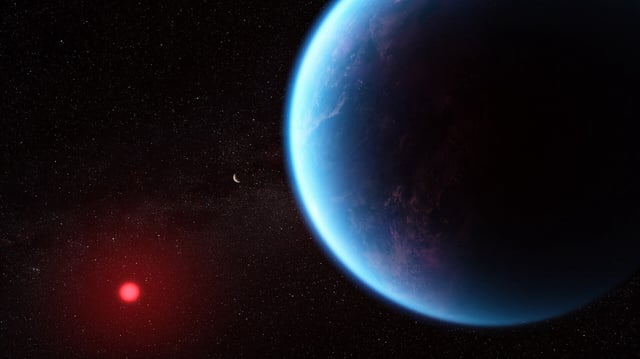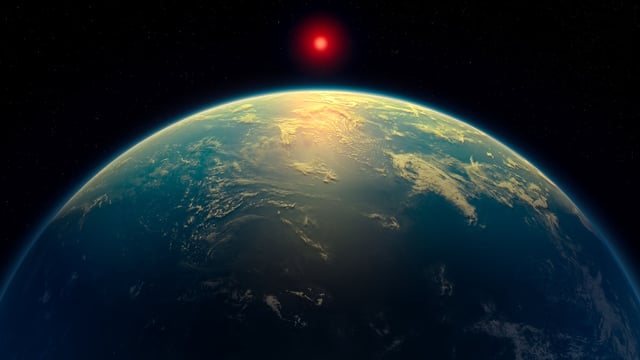Overview
- Researchers at the University of Cambridge detected dimethyl sulfide (DMS) and dimethyl disulfide (DMDS) in the atmosphere of K2-18b using JWST's mid-infrared instrument.
- DMS and DMDS are primarily produced by biological processes on Earth, but scientists are exploring abiotic pathways to explain their presence on K2-18b.
- The detection reached a 3σ statistical significance, indicating a 99.7% probability the signal is real, but further observations are needed to confirm it at the 5σ threshold.
- K2-18b is classified as a Hycean world, with a hydrogen-rich atmosphere and a potential global water ocean, making it a promising candidate for life.
- The findings highlight the capabilities of JWST in exoplanet research while sparking scientific debate over the interpretation of biosignature signals.



